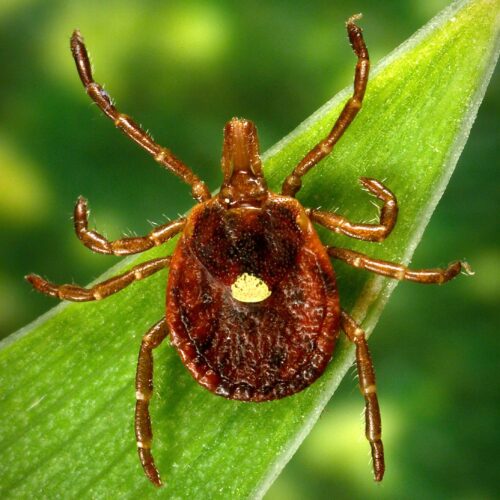Public health officials have issued a warning after positive Alpha-Gal syndrome cases surged throughout Virginia, potentially having fatal consequences.
Alpha-Gal syndrome (AGS) is contracted through tick bites and can pose life-threatening risks. Primary symptoms include hives, angioedema, gastrointestinal disturbances, nasal congestion, sneezing, headaches and a drop in blood pressure.
In severe instances, AGS can even lead to death, as highlighted by the Centers for Disease Control and Prevention (CDC), which issued a warning about this syndrome just last month.
The primary vector for this syndrome is the lone star tick, which is prevalent in Virginia, as noted by Julia Murphy, a state public health veterinarian from the Virginia Department of Health (VDH).
Learn the benefits of becoming a Valuetainment Member and subscribe today!
“We do have a lot of lone star ticks here in Virginia, so we think that’s driving a lot of what we are seeing in Virginia when it comes to Alpha-Gal and people testing positive for alpha-gal,” she said, according to WSET.
AGS is distinct in its transmission as it is not reliant on the prolonged attachment of ticks to humans, a common trait among many tick-borne diseases. Instead, AGS is transferred through the tick’s saliva. The Virginia Department of Health underscores that alpha-gal, a specific sugar molecule, is present in the tick’s saliva and is introduced into an individual’s body during a bite.
“Once you have alpha-gal, your future is somewhat uncertain in regard to the kind of restrictions you might have and what you can eat and what other things you can take in orally such as medications and such,” Murphy added.
People who fall victim to this allergy, often during periods of heightened tick activity in warmer months, are urged to avoid consuming foods containing the alpha-gal sugar molecule. This molecule triggers allergic reactions, particularly to fatty meats such as pork, beef, rabbit and more, as well as products derived from mammals like protein powders and gelatin.
The number of reported tickborne diseases more than doubled from 2004 through 2016, the CDC reported in 2018. During that period, seven new germs that spread through tick bites were discovered in the United States.
Health departments reported a record number of cases of tickborne disease to the CDC in 2017.
The CDC has only been aware of alpha-gal Syndrome since 2008. Currently, there is no treatment or cure.


















Add comment